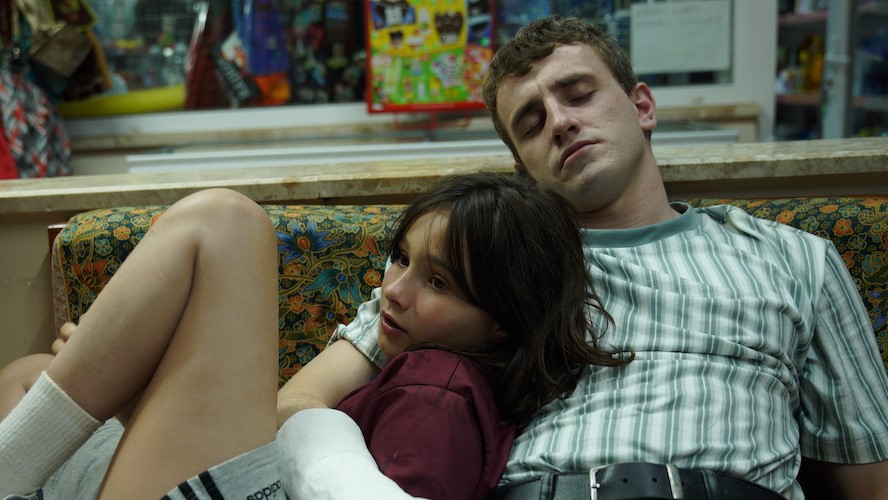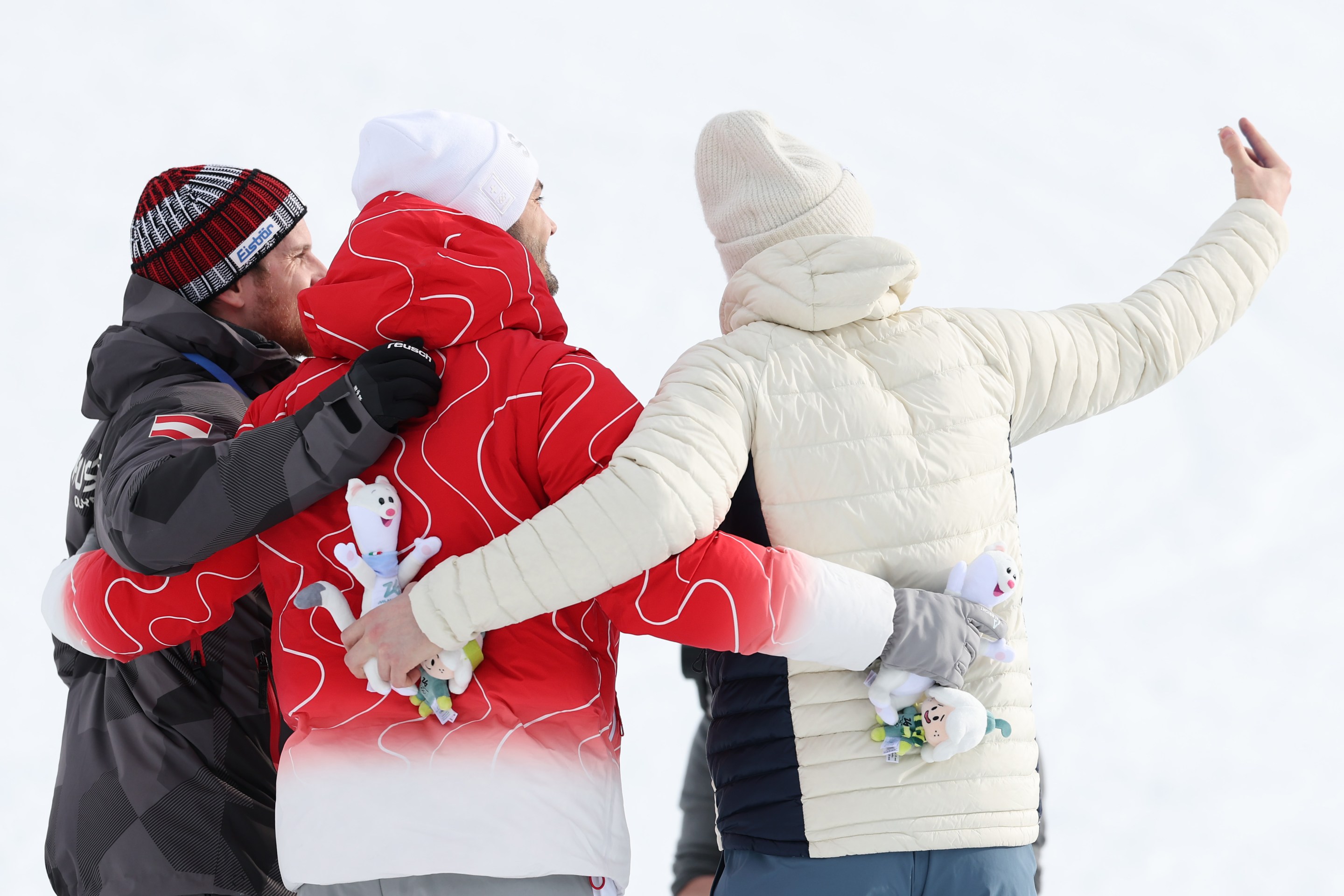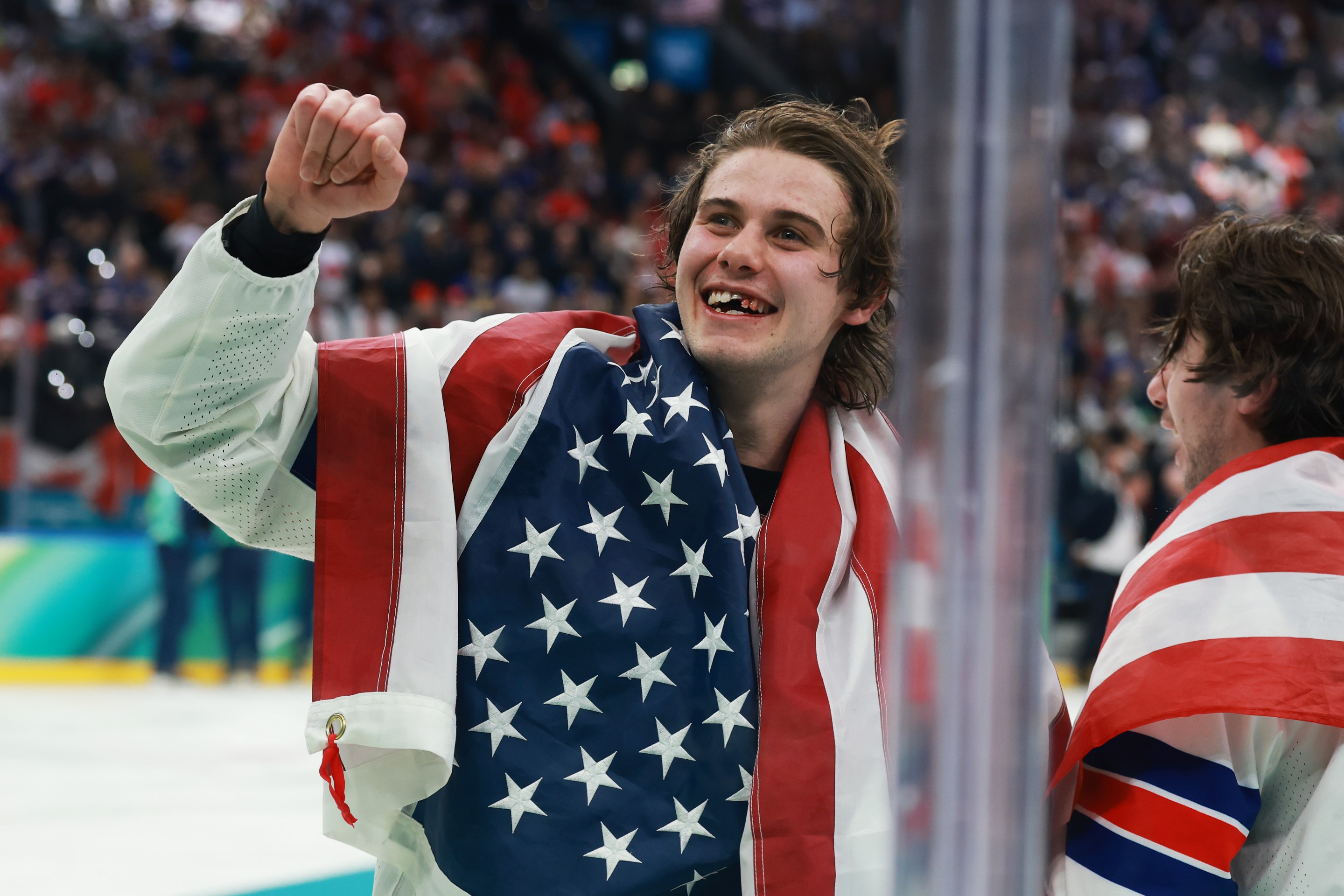I went to see Aftersun—the new, freakishly well-reviewed debut feature from the Scottish director Charlotte Wells—in a mid-sized seven-screen theater in the East Village on Saturday. There were maybe 15–20 other people in the room. When the movie was over, and the credits were rolling, no one moved for a solid minute. I don't know what percentage of the audience was responsible for this, but I could hear sobs. I have hang-ups about crying in public, so I shut my tears down pretty quickly, but it took some effort.
I don't think Aftersun is a movie that's actively trying to make you weep, like, I don't know, My Girl or The Fault In Our Stars. The two principal actors are each too committed to their own reality to play to the crowd in that way. But something in the reminder about what it's like to be 11 years old, and of the inherent gap between parent and child, touches a common nerve.
The plot of Aftersun can be pretty well summed in one sentence: Calum, a divorced Scottish dad who just hit his 30s, takes his 11-year-old daughter Sophie on vacation to an affordable, campy resort in Turkey sometime in the late '90s or early 2000s. Not knowing much about the film going in, I had a feeling of dread through the first 80 percent of it that something terrible was going to happen, but this was unnecessary, at least in the sense that neither character suffers serious on-screen trauma or physical harm. Everything meaningful happens beneath the surface, and Sophie's memory of this fairly normal, mostly nice vacation is just the vehicle to get us there. Paul Mescal plays Calum, and though the role is definitely meant for someone a little older he continues to earn his status as one of the internet's favorite boys with a performance that is both charming and heartrendingly empty at its core. Frankie Corio, a newcomer playing Sophie, is astonishingly natural with her halting yet unselfconsciously insightful dialogue, perfectly capturing a girl whose intuitions about the world exceed, as of now, the vocabulary and experiences needed to articulate them.
Perhaps because Mescal is definitely too young to be this girl's actual father, the two possess an intimate us-against-the-world chemistry more befitting siblings than parent and child. (Calum is mistaken for Sophie's brother at one point in the film.) They shoot pool together, quietly mock authority figures, slow dance in their room to the Blur song "Tender," and know exactly what to say when they want to hurt each other, too. But the more we're invited into Calum's moments away from Sophie at the resort, the more apparent it becomes that his charisma and playfulness don't carry over into any other parts of his life. He's got a broken arm at the beginning of the film whose cause he doesn't remember, and he hurts his shoulder later on under mysterious circumstances that follow several beers. He tells a diving instructor that he's surprised he made it to 30 and can't see himself at 40. He's moved from Edinburgh to London and, when asked by Sophie, says he feels like he can't go back. He's struggling with money and doesn't have any clear ambitions beyond maybe fixing up a house with a friend. He isn't in a relationship and still exchanges "I love you"s with Sophie's mom. If it wasn't for the presence of his daughter, you think, Calum might just quietly fade into nothingness. As the trip winds down, and their parting looms, that thought becomes more and more distressing.
Interspersed with scenes from the vacation are brief shots that eventually imply Sophie is recalling this trip from the present day, in a life where she and another woman are raising a baby in a city apartment. Less literally and more impactfully, several times we get moments of Calum dancing in what looks like a rave, unaware that adult Sophie is nearby, watching him. He's frozen in time at 31. This part of Sophie's consciousness is where he exists now, available as a memory but also painfully distant, unable to be reached as a fellow adult.
The movie 20th Century Women has a line I think about a lot. Annette Bening tells Greta Gerwig, about her son, "You get to see him out in the world, as a person. I never will." Versions of that sentiment are often written about parents who raise their children into independence, but it's true in reverse, too. The blessing and the curse of a parent-kid relationship is that it can never be on equal terms—can never be a camaraderie untinged by a history of dependency and responsibility. You see the other as only you can while blinded to any other version that might exist. When that relationship ends, you're left with a person in your head who only ever existed to you. That distance is inevitable, and it makes what you do have feel like a miracle with an expiration date. I think that's why a lot of us were crying.






